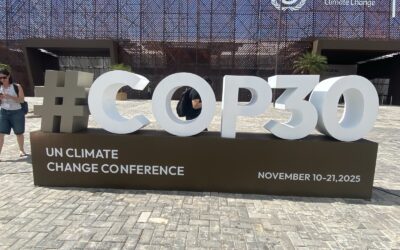UN Member States: Reject False Climate Solutions, Direct Policy and Funding to Immediate Carbon Emissions Reductions and Real Solutions
IPCC report clearly shows there is no room for carbon offsets in climate change policy
(UTRECHT, March 20, 2022) – United Nations member states must urgently shift away from false solutions, including carbon offsets and large-scale carbon dioxide removals, and redirect policy and funding to immediate emission reductions to keep global temperature increases below 1.5 °C in line with the findings of the UN Intergovernmental Panel on Climate Change (IPCC), the Global Forest Coalition said today.
The IPCC today released its sixth synthesis report aimed at informing global policymakers on responses to climate change. The IPCC’s projections on what is and will be left in our collective “carbon budget” clearly show that carbon dioxide removals (CDR) cannot serve as a substitute for deep emissions reductions, the Global Forest Coalition (GFC) added.
“The facts are clear; there is no equivalence between carbon dioxide removals and reducing emissions, and if we don’t shift away from offsets, and fast, we will have no chance of averting climate catastrophe,” said Souparna Lahiri, GFC’s Senior Climate and Biodiversity Policy Advisor. “This misplaced focus on offsets and carbon dioxide removals is acting as a barrier to policy and finance flows to adaptation and real solutions. As long as such false solutions are still on the table, powerful corporate interests will use it as a distraction and excuse to continue their emissions-heavy practices.”
Existing CDR methods include afforestation/reforestation and bioenergy with carbon capture and storage (BECCS) largely with monoculture tree plantations, and agroforestry methods – all of which take decades to have any effect and only temporarily sequester carbon in ecosystems, which is reversible when trees and other organisms are harvested or die. Any carbon temporarily sequestered through offsets cannot compensate for the immeasurably greater amount released into the atmosphere through permanent fossil fuel emissions. Offset projects are also often responsible for human rights abuses, environmental harms and land conflicts and have gender-differentiated impacts. Carbon offsets are also a form of climate colonialism, GFC said. It often allows corporations in the Global North to transfer their climate responsibilities to southern countries, where profit-making monoculture plantations are boosted at the expense of massive deforestation and destruction of local biodiversity and water sources. These impose unprecedented negative impacts on local communities, especially Indigenous Peoples, women, children, and elders.
“Carbon offset projects inherently favour those with economic power and tend to further entrench inequalities faced by marginalised groups, including women in all their diversity and Indigenous Peoples,” said Valentina Figuera Martinez, GFC’s Gender Justice Campaign Coordinator. “The burden of carbon offsets and large-scale CDRs imposed on the Global South and lack of climate finance from the global north directed towards climate resilience, and real solutions is also a violation of the Common But Differentiated Responsibilities (CBDR) principle and smacks of carbon colonialism.”
Furthermore, untested technology-based removals, such as BECCS and direct air carbon capture and storage, are unproven at scale. They are also fraught with risks in regard to the permanence of removals and the potential for human rights violations.
“The corporate, capitalist capture of climate change mitigation is a risk to the planet and must be stopped. The greenwashing of carbon offsetting programmes must end, and real, gender-just, rights-based, and community-led and governed solutions must be supported,” said Coraina de la Plaza, GFC’s Forest and Climate Campaign Coordinator. “This will not only contribute to climate change mitigation and adaptation but also to social, gender, and climate justice, and equity.”
The IPCC should be instrumental in building up a global, science-based policy consensus to rapidly phase out and divest from extractive industries, halt deforestation and biodiversity loss, and address drivers like industrial agriculture and the livestock sector and put an end to offsets. A global framework is needed for real climate solutions that must be gender-transformative and community governed, based on rights and socially just approaches. The current situation of UN member states continuing to rely on offsets and moving on to untested distractions, such as large-scale CDRs, simply to meet their on-paper commitments under the Paris Agreement is disingenuous and dangerous, said GFC.
“The IPCC has remained regretfully ambivalent on the role of CDR. We expect it to provide a proper scientific response to the false, mitigation-heavy climate solutions pedalled around under immense pressure and lobbying from climate-destroying industries, including the fossil fuel, agribusiness, and industrial livestock industries,” said Andrea Echeverri, GFC’s Unsustainable Livestock Campaign Coordinator. “The IPCC is failing in this regard. And if it fails, we all will.”
For more information, please contact:
Ismail Wolff (Europe): ismail.wolff@globalforestcoalition.org (English)
Megan Morrissey (US/Latin America): megan@globalforestcoalition.org +12023656900 (Spanish/English)
Photo credit: Elena Kreuzberg




